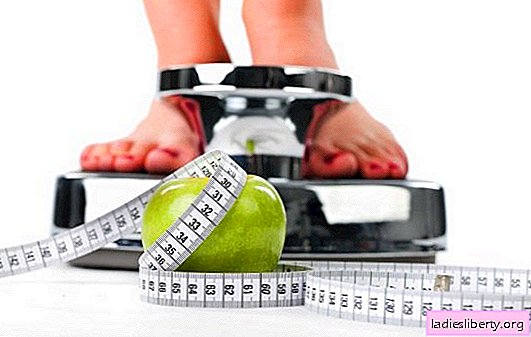
Obesity is a disease common today among people of all ages.
Obesity is an increase in body weight due to excessive deposition of fat (adipose tissue).
Obesity is considered a chronic disease.
Obesity is treated comprehensively. The main element in the treatment of obesity is a diet, without which it is impossible to defeat this problem, even through surgical intervention. In this regard, the first thing a person suffering from obesity should do is consult with doctors and nutritionists, who will help to create a new diet that is fundamentally different from the previous one. As a rule, people with a sedentary lifestyle, working at a sedentary job, in whose life there is no additional physical activity, as well as people who eat randomly, preferring foods high in sugar, fat, etc., are often obese. . For example, in the United States of America, people are obese, mainly due to regular eating in fast foods, which have become a kind of part of the culture of the American people. In other words, obesity occurs when a person receives much more calories from food than he spends. Subcutaneous fat, as a rule, is distributed more or less evenly throughout the body, and does not accumulate only, for example, on the stomach or hips.
Obesity is often accompanied by a number of additional diseases. For example, in obese people, the water-salt balance in the body is disturbed, the work of the cardiovascular, respiratory and digestive systems worsens, the load on the musculoskeletal system increases, and therefore pains in the spine and joints appear, especially for the knee and ankle joints, which subsequently leads to arthrosis.
Obesity is of two types:
- Alimentaronoe, when body weight increases gradually, and fat is deposited evenly;
- Hypothalamic, when body weight increases quite quickly, and fat deposits are formed mainly on the stomach, hips and buttocks. Hypothalamic obesity is characterized by increased appetite, thirst, nighttime hunger and dizziness, headaches, decreased sleep, and sweating.
Obesity is usually divided into 4 stages, which are determined by exceeding the norm of actual body weight by:
1. 15-29%;
2. 30-49%;
3. 50-100%;
4.100% or more.
The norm of actual body weight is usually calculated according to Brock's formula, when 100 is taken away from growth. That is, with an increase of 180 centimeters a person should weigh 80 kilograms. Brock's formula does not give an exact value and acts only as a definition of an approximate figure. It is clear that, depending on the type of activity, lifestyle and individual physiological characteristics of a person, this indicator varies.
As mentioned earlier, the main element in the treatment of obesity is diet.
Diet for obesity involves many restrictions and changes in the usual diet. So, for example, the patient must refuse fried food, preferring boiled, stewed, baked or steamed. It is best to cook on your own to be absolutely sure of the quality of the dishes and the way they are prepared. It is also not recommended to salt food during cooking. If necessary, you can salt the finished dish immediately before use. The use of spices also needs to be minimized. It is strictly forbidden to visit fast foods and the use of confectionery and sweets. Sugar is replaced by sweeteners. Particular attention is paid to fiber, which helps to cleanse the stomach and intestines, as well as the normalization of digestive processes in the body. In obesity, it is customary to eat fractionally in small portions 5-6 times a day, and the total calorie content should not exceed 1900 kilocalories per day. It is recommended to consume proteins up to 100 grams per day, fats - up to 80 grams, half of which should be of vegetable origin, carbohydrates - up to 200 grams.
The set of products for obesity is also significantly different from the set of products for an ordinary person.
Among the allowed products are buckwheat, barley and barley porridge, vegetables rich in fiber, honey, low-fat dairy products, tea (black, green and herbal), various decoctions of herbs, coffee with milk, fish and low-fat meat, eggs (one per day), berries, fruits, as well as compotes, jellies and mousses made from them, various soups (vegetable, fish, cabbage soup, borscht, etc.), bread (whole grain or wholemeal, as well as rye and wheat). It is also allowed to consume a little oil and low-fat and mild sauces, such as tomato or white.
It is from the above dishes that the menu is built for the treatment of obesity.
Fatty meat and fish, pasta, white rice, beans, semolina, canned foods, fatty dairy products, spicy and fatty sauces (mayonnaise, mustard), animal fats, purchased juices, pastries and sweets, white bread are banned for obesity. , pastries made from yeast, puff and shortcrust pastry, some berries and fruits, such as grapes and bananas, as well as naturally fast food and alcoholic drinks.
A sample menu for 2 days for obese people:
Day 1
First meal: scrambled eggs, stewed carrots, apple;
The second meal: vegetable salad, apple;
Third meal: chicken broth soup, boiled lean meat, green peas, freshly squeezed apple juice;
Fourth meal: boiled fish, herbal decoction;
Fifth meal: low-fat cottage cheese and kefir.
Day 2
First meal: oatmeal, vegetable salad, tea or coffee without sugar;
Second meal: vegetable stew;
The third meal: cabbage soup or borsch, cabbage rolls without rice, 2 apples;
Fourth meal: low fat cottage cheese, herbal tea;
Fifth meal: kefir.
Also, in the treatment of obesity, it is important to arrange fasting days once every one to two weeks. This is necessary to improve digestion and unload the nervous system.
Fasting days are often made from one type of product, that is, when throughout the day a person eats, for example, only dairy products or only fruits.
It is important to understand that diet is only part of the treatment of obesity. Obesity can only be cured with an integrated approach. In addition to the diet, it is also necessary to give the body additional physical activity, gradually increasing its intensity, take drugs that affect the level of appetite and normalize digestion, and are regularly observed by doctors and nutritionists.











